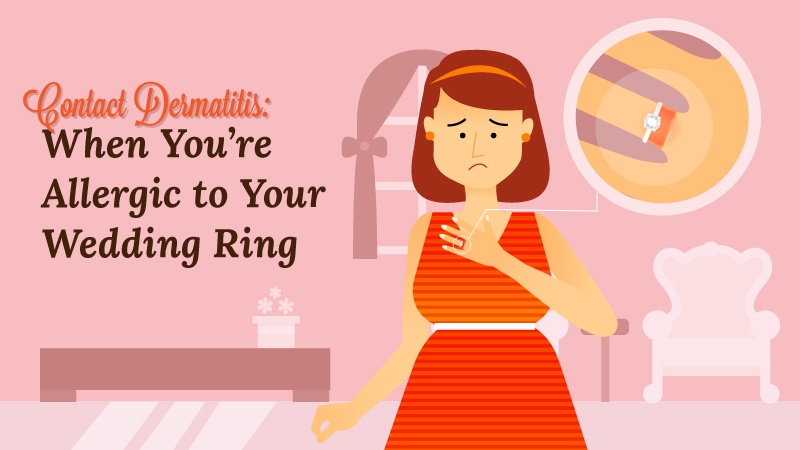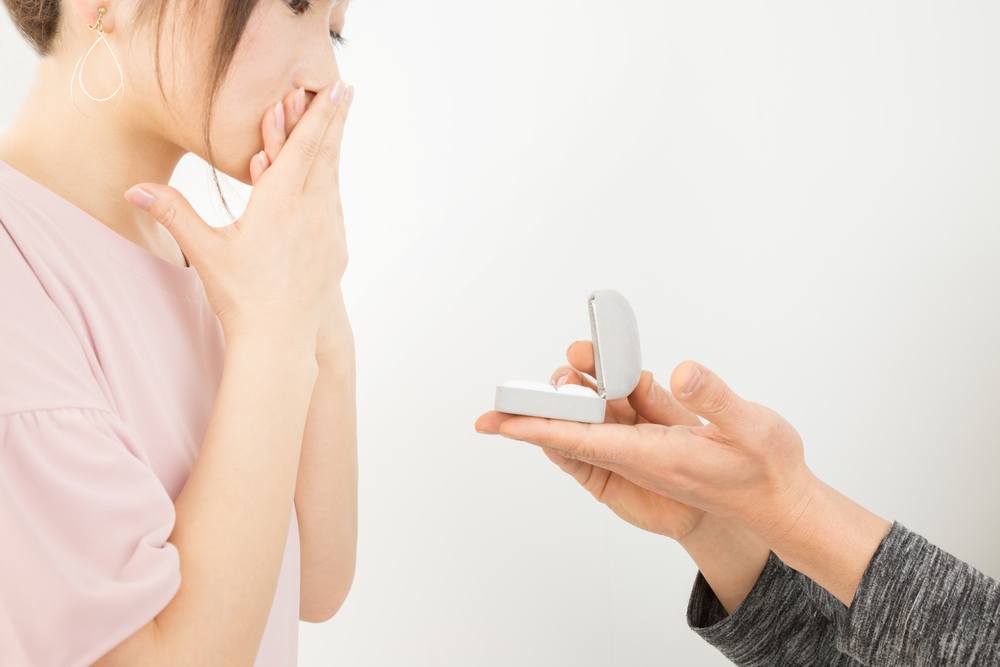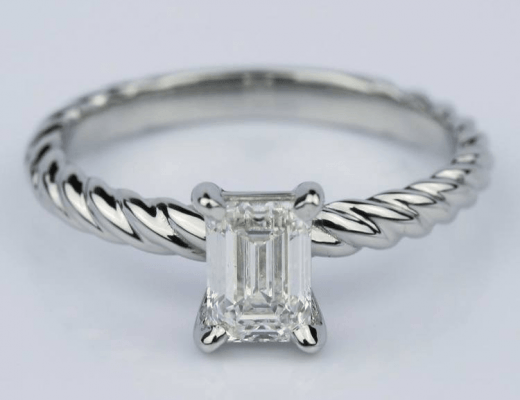You find the perfect man. The man you want to spend the rest of your life with, and he wants to spend his life with you. He proposes. Because he knows you so well (and knew to ask your friends for help), the ring is perfect.
All is well… until you feel a slight itch irritating your ring finger.
As time passes, the itch worsens, the skin where your ring sits becomes red, flaky, and welts start to form. You think: Is this a sign? My body refuses to let me wear the ring. Does that mean I shouldn’t be with the man who gave it to me?
Before you go canceling the caterer, you should know that according to the North American Contact Dermatitis Group, between 24 and 36 percent of women share the same nagging problem. It’s not a sign. It’s a skin allergy called Contact Dermatitis.
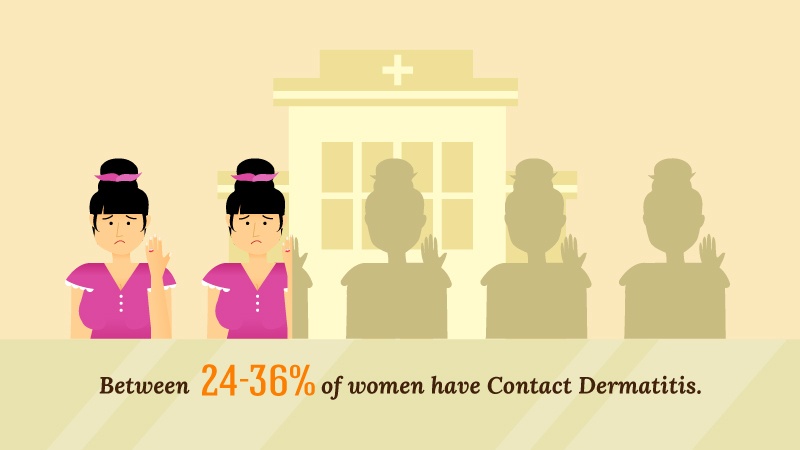
Jewelry items, especially rings, often rest near your skin for long time periods, making those with allergies to certain metals or irritants more susceptible to abrasive skin rashes.
Causes
The most common cause of ring dermatitis is an allergy to nickel, which is used as an alloy to harden gold and silver in many jewelry pieces. Though there are other metals that cause allergic reactions, those are much less common, and most people who suffer from dermatitis have a specific issue with nickel.
If you’re not entirely sure if nickel is the exact metal causing you pain, there is an at-home patch test. Tape a nickel coin (which contains about 25% nickel) to your inner arm for about eight hours. If a red rash forms in the following 12-48 hours, your problem is most likely with nickel.
Jewelry items with the highest amounts of nickel create the worst allergic reactions. Some say that high-priced, good quality jewelry should not cause dermatitis, but this is not necessarily the case. Nickel can be present in both expensive and more affordable rings.
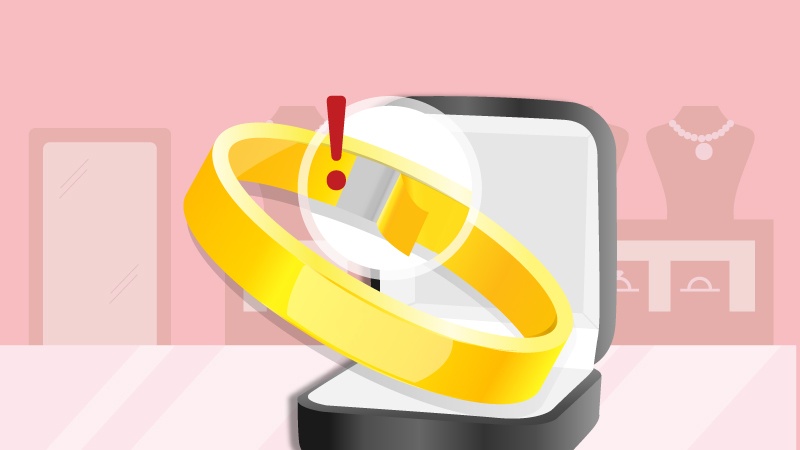
The most annoying thing about metal allergies is that once you get them, they do not go away. Also, continued exposure can worsen the symptoms.
Things That Speed Up Your Nickel Allergy
- Erosion – It’s possible you have been wearing your ring for years and years without having an allergic reaction to it. Then, you wake up one day and you cannot stop itching. It might seem like your allergic reaction came out of nowhere, but it’s more likely that the time and consistent wear finally allowed for the nickel salts in the ring to surface and come into contact with your skin.
- Sweating/Washing – Water dissolves the nickel in your ring and forms salts, which get into the skin and cause that painful, itchy reaction. Thus, washing, showering, and sweating all serve as catalysts for nickel-caused skin dermatitis.
- Piercing – Piercing often trigger metal allergies because they involve exposing open wounds to metals. You are more likely to trigger an allergy to your wedding ring if you’ve had a piercing.
Surface irritation – Some people who get dermatitis are not allergic to metals but rather they are allergic to the irritants that gather under the ring and rub against the skin. For instance, when you wash your hands, your ring traps soap inside it, and the prolonged exposure to the soap against your finger results in the breakdown of the skin’s protective layer. This looks like the same dermatitis caused by nickel, but it is treated differently.
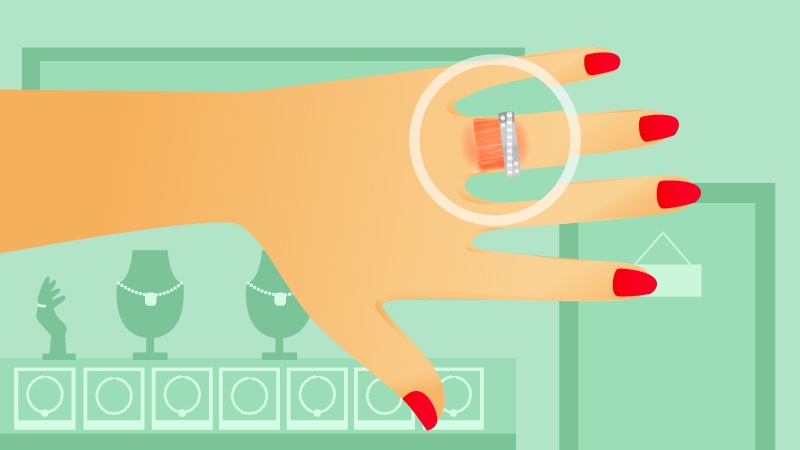
Symptoms
If you have a metal allergy, you should have a reaction to the metal 12-48 after being exposed to the metal. Some symptoms include…
- Red Irritated Skin/Rash
- Itching
- Burning
- Scaly Welts/Blisters
- Slight Swelling
Remedies
Buy A New Band/Ring – Obviously, one of the easiest ways to treat the problem of a nickel allergy is to cease your exposure to nickel, even if that means buying a new band or an entirely new ring made of metals that do not cause the negative reaction for your skin. However, most people are already attached to their ring by the time the dermatitis forms, so switching or changing the ring might not be preferred.
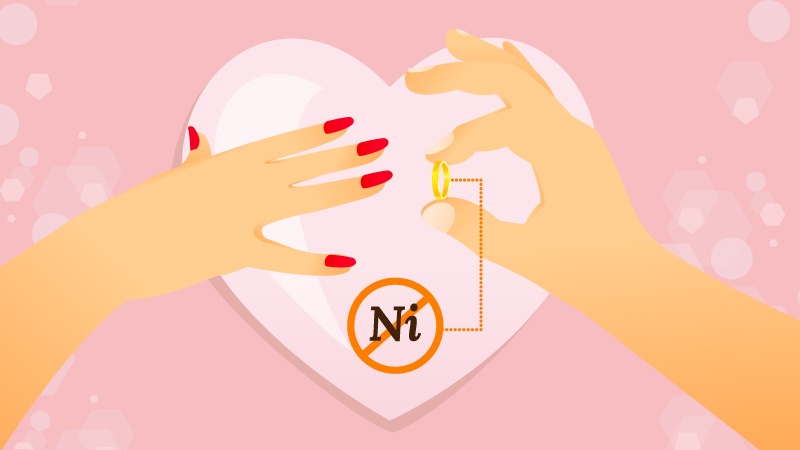
Avoid White Gold – White gold tends to be more reliant on nickel than yellow gold, and therefore it usually has higher amounts of nickel in it.
Coat It With Clear Nail Polish or Nickel Guard – Clear nail polish is a nice, quick fix that can hold you over temporarily and serve as a protective barrier between your skin and the metals in your ring. You can also purchase Nickel Guard, which is similar to clear nail polish but is said to adhere more strongly to metal and last longer than nail polish.
Plate Ring With Rhodium – Take your ring to the jeweler and have them coat the ring with rhodium for a longer lasting protective barrier.
Topical Steroid Cream – Whenever they see severe contact dermatitis, most doctors provide a topical steroid cream that treats the problem. However, the doctor will most likely also recommend you stop wearing your ring.
Avoid Getting Your Ring Wet – Working out in your ring, showering, and washing your hands are all actions that breakdown the surface coating of your ring and invite the nickel to your skin. Try taking it off before doing these things.
Hypoallergenic Jewelry – Because metal allergies are a problem for so many, jewelers have focussed on inventing new ways to create rings that are nickel free. For hypoallergenic rings look for pieces made of these metals:
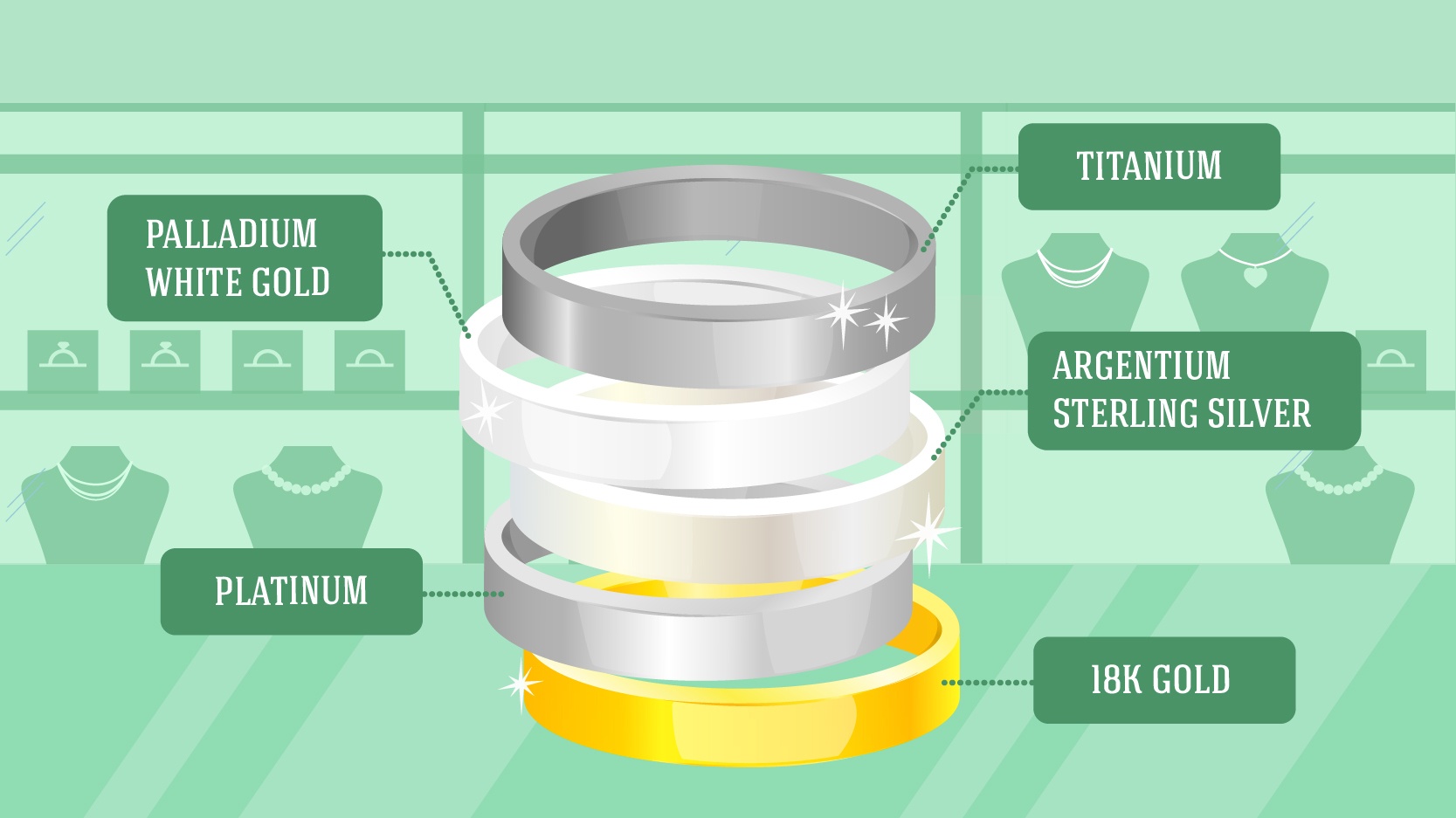
- 18K Gold – Though it is unlikely, some 18K gold might still have nickel in it, make sure yours does not by asking the jeweler.
- Platinum – Platinum is a strong metal, so it does not have to be mixed with other metal alloys in order to maintain durability.
Argentium Sterling Silver
- Palladium White Gold
- Titanium
For Surface Irritation Allergy…
- Dry Your Hands – Surface irritation dermatitis is often associated with moisture being trapped between the ring and your finger, causing unpleasant friction and the breakdown of your skin’s protective layer. To help prevent this, make sure you dry your hands thoroughly after washing them. This will reduce the chance of unwanted friction.
- Lotion With Protective Barrier – Lotions with strong protective barriers are known to show positive results against surface irritation dermatitis.
Whether your dermatitis is caused by a metal allergy or by surface irritation, know that there are ways to deal with the problem. There is no need to keep putting yourself through unnecessary pain when there are plausible, fairly easy solutions!

